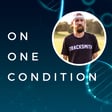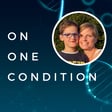
Episode 61: MaryAnn Bowman - CRPS & Gastroparesis
MaryAnn opens up with honesty about her daily life with Complex Regional Pain Syndrome (CRPS) and Gastroparesis. She shares how a fall in the bathroom spiralled into a life-altering condition that left her unable to walk, in relentless pain, and dismissed by multiple healthcare professionals. Despite visible healing on scans, she was battling invisible agony.
We discuss the different ways MaryAnn manages her condition, with music therapy, strict routines, soft textures, and self-advocacy. We also talk about how she found a lifeline in ketamine therapy, a controversial yet transformative treatment that helped her regain mobility and her mental stability.
As a founder of several clinical research companies, MaryAnn also reflects on how living with a chronic illness has changed her perspective as a clinical professional, strengthening her belief in patient-centered care.
The song MaryAnn chose is I am woman by Emmy Meli.



















